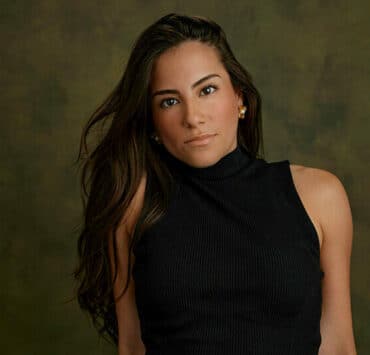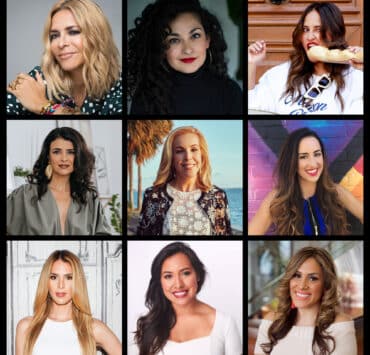|
Getting your Trinity Audio player ready...
|
Before Raoul Cantero began breaking barriers, he was just another high school senior trying to get by. His parents had been divorced since he could remember. For years, he lived with his mother during the weekdays and with his father on weekends. But when he started dating his then-girlfriend, he discovered light at the end of the tunnel.
“Her family brought me a lot of stability, and she did,” Cantero says. “We got married after my first year in law school. She’s kept me very grounded. She’s responsible, really, for my faith. So probably my faith and my wife have more to do than anything else with where I am today and who I am.”
Cantero attended Florida State University and his girlfriend attended the University of Florida, two hours away. After years of a long-distance relationship, they were married after his first year at Harvard Law School. They will celebrate forty years next June.
After law school, Cantero served as a law clerk to a federal judge before receiving a Fulbright scholarship to Panama to pursue creative writing. He then spent fourteen years at law firm Adorno & Yoss in Miami. When he began at the firm, he was its thirteenth lawyer. By the time he left, there were 250. In 2002, Governor Jeb Bush appointed him to the Florida Supreme Court. He became the first justice of Hispanic descent.
“It was amazing,” Cantero says. “I was only forty-one at the time, and to be appointed to the [Florida] Supreme Court was a very difficult process. And it was a big honor.”
While Cantero sat on the Florida Supreme Court, he heard hundreds of appeals and authored over a hundred opinions. He also chaired its Commission on Professionalism and spoke about the standards of conduct that licensed lawyers needed to follow across the state.
“She’s responsible, really, for my faith. So probably my faith and my wife have more to do than anything else with where I am today and
Raoul Cantero
who I am.”
“We wanted to make sure that the standards of professionalism were being [met by] the new law school graduates, the new members of the bar. So I gave a lot of speeches about that around the state,” he says.
Even as Cantero was blazing a trail for Hispanic legal talent, his wife and kids struggled adjusting to life in Tallahassee, Florida, where less than 4 percent of the population was Hispanic or Latino. His children experienced racism and xenophobia in school. When his daughter developed a tumor that went undiagnosed for months, they realized how much they missed the support of their family in Miami.
“My kids went through a lot up there,” Cantero says. “They felt a lot of discrimination. It wasn’t the same for me because I was on the court, so I was kind of insulated from that. But they were called names. They were told to go back to Cuba, to get on their raft, and worse.”
Plenty of people talk about prioritizing family over career ambitions, but Cantero followed through. In 2008, he moved his family back home to Miami and joined the law firm White & Case. Since his arrival, he’s represented clients in two hundred appeals and has participated in nearly a hundred oral arguments.
Cantero is now the executive partner of the firm’s Miami office. His proudest work was during his five-year chapter as chair of the firm’s Global Diversity Committee. During his tenure, the firm ranked number one in American Lawyer’s Diversity Scorecard and has now been ranked in the top ten for fifteen consecutive years. He and the members of the Diversity Committee reimagined how White & Case recruits minority lawyers.
“We’re not recruiting anyone just because they’re a minority, but we realize that, for many reasons, the best law school recruits are not always found in the top law schools,” Cantero says.
“My kids went through a lot up there. They felt a lot of discrimination. It wasn’t the same for me because I was on the court, so I was kind of insulated from that.”
Raoul Cantero
Implementing a new recruiting strategy to search beyond the gates of Harvard, Yale, and Stanford for diverse legal talent, Cantero and his teams branched out to seek the top students at public law schools.
“Sometimes you don’t find lawyers of different ethnic groups in the obvious places. Especially if they’re coming from low-income or underprivileged backgrounds, you may not find them in an Ivy League school,” Cantero says. “They may have not been able to afford it, or they’ve had to stay in their home community with family. So we started trying to recruit the best law students that are also from outside the top twenty-five schools, where we think we can find gems.”
This formula has proved successful. Cantero shared as an example a summer associate who joined the Miami office from Florida International University, a Miami-based public university located near where Cantero grew up. In the most recent rankings, FIU ranked 98th among US law schools, and more than two-thirds of the students at FIU are Hispanic.
“She worked out very well,” Cantero says.
Under Cantero’s leadership, White & Case also joined the SEO Law Fellowship Program, which helps historically underrepresented law students thrive in law school and in corporate law firms. Through the program, SEO fellows complete extensive academic training and professional development, work as a summer associate at the firm before starting law school, and receive first-year academic support to ensure their success.
Meanwhile, one thing is clear: Cantero’s loyalty to his familia and comunidad is unwavering.

